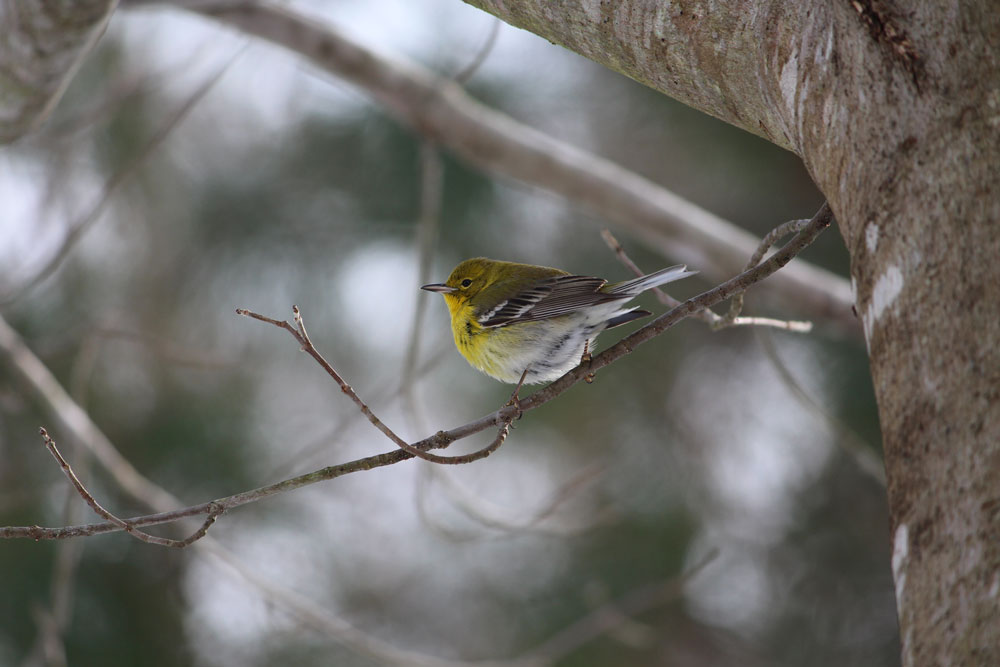Extension Workshop on Managing Land for Non-Game Wildlife
go.ncsu.edu/readext?373787
en Español / em Português
El inglés es el idioma de control de esta página. En la medida en que haya algún conflicto entre la traducción al inglés y la traducción, el inglés prevalece.
Al hacer clic en el enlace de traducción se activa un servicio de traducción gratuito para convertir la página al español. Al igual que con cualquier traducción por Internet, la conversión no es sensible al contexto y puede que no traduzca el texto en su significado original. NC State Extension no garantiza la exactitud del texto traducido. Por favor, tenga en cuenta que algunas aplicaciones y/o servicios pueden no funcionar como se espera cuando se traducen.
Português
Inglês é o idioma de controle desta página. Na medida que haja algum conflito entre o texto original em Inglês e a tradução, o Inglês prevalece.
Ao clicar no link de tradução, um serviço gratuito de tradução será ativado para converter a página para o Português. Como em qualquer tradução pela internet, a conversão não é sensivel ao contexto e pode não ocorrer a tradução para o significado orginal. O serviço de Extensão da Carolina do Norte (NC State Extension) não garante a exatidão do texto traduzido. Por favor, observe que algumas funções ou serviços podem não funcionar como esperado após a tradução.
English
English is the controlling language of this page. To the extent there is any conflict between the English text and the translation, English controls.
Clicking on the translation link activates a free translation service to convert the page to Spanish. As with any Internet translation, the conversion is not context-sensitive and may not translate the text to its original meaning. NC State Extension does not guarantee the accuracy of the translated text. Please note that some applications and/or services may not function as expected when translated.
Collapse ▲The Chatham County Center of North Carolina Cooperative Extension and the North Carolina Wildlife Resources Commission are teaming up to conduct a Wildlife Workshop Series for landowners. The second workshop, Managing your Land for Non-game Wildlife, will be on Wednesday October 28, 2015 from 7:00-9:00 p.m. in the auditorium of the Agriculture Building in Pittsboro. The program will be presented by staff from the North Carolina Wildlife Resources Commission.
AGENDA:
Welcome and Introductions
Debbie Roos, North Carolina Cooperative Extension
Managing Private Lands for Bats
Brandon Sherrill, NC Wildlife Resources Commission
Managing Private Lands for Songbirds
Allison Nolker, NC Wildlife Resources Commission
Managing Private Lands for Reptiles and Amphibians
Jeff Hall, NC Wildlife Resources Commission
(See speaker bios below.)
There is no cost to attend the workshop but pre-registration is required. Click here to register on-line.
For more information contact Debbie Roos at 919-542-8202.
Speaker Bios:
Brandon Sherrill: Brandon Sherrill has worked for the North Carolina Wildlife Resources Commission (NCWRC) as a Mammalogist since 2013. Previously, Brandon worked as an educator/curator at the North Carolina Museum of Natural Sciences and as a regional biologist for the South Carolina Department of Natural Resources. He obtained a bachelor’s degree in Fisheries and Wildlife Sciences from NC State University (NCSU) in 2006 and a master’s degree in Fisheries, Wildlife, and Conservation Biology from NCSU in 2010.
Allison Nolker: Allison Nolker is a Wildlife Diversity Biologist with the NC Wildlife Resources Commission. Her position is based in the Piedmont, but has statewide responsibilities for nongame birds and mammals. Before beginning her nongame biology career, she worked as a temporary employee for the Commission as the Captive Cervid Biologist since 2014. She earned her Bachelor’s degree in Zoology from NC State in 2013, and her Master’s degree in Applied Ecology at NCSU in 2014. Her current work includes monitoring songbird and small mammal populations in the Sandhills and Uwharries.
Jeff Hall: Hired in 2007 by the North Carolina Wildlife Resources Commission, Jeff Hall is the Partners in Amphibian and Reptile Conservation (PARC) Biologist. As PARC Biologist, Jeff works with landowners to promote habitat management that benefits reptiles and amphibians as well as other wildlife species. He coordinates the North Carolina chapter of PARC helping to bring public and private partners together to further conservation efforts for reptiles and amphibians. Jeff also participates in field work on a variety of projects including rare amphibian monitoring and habitat restoration, upland snake conservation, and Project Bog Turtle. In addition, Hall manages the Calling Amphibian Survey Program (CASP) which is designed to monitor long-term trends of frog and toad populations across the state.



